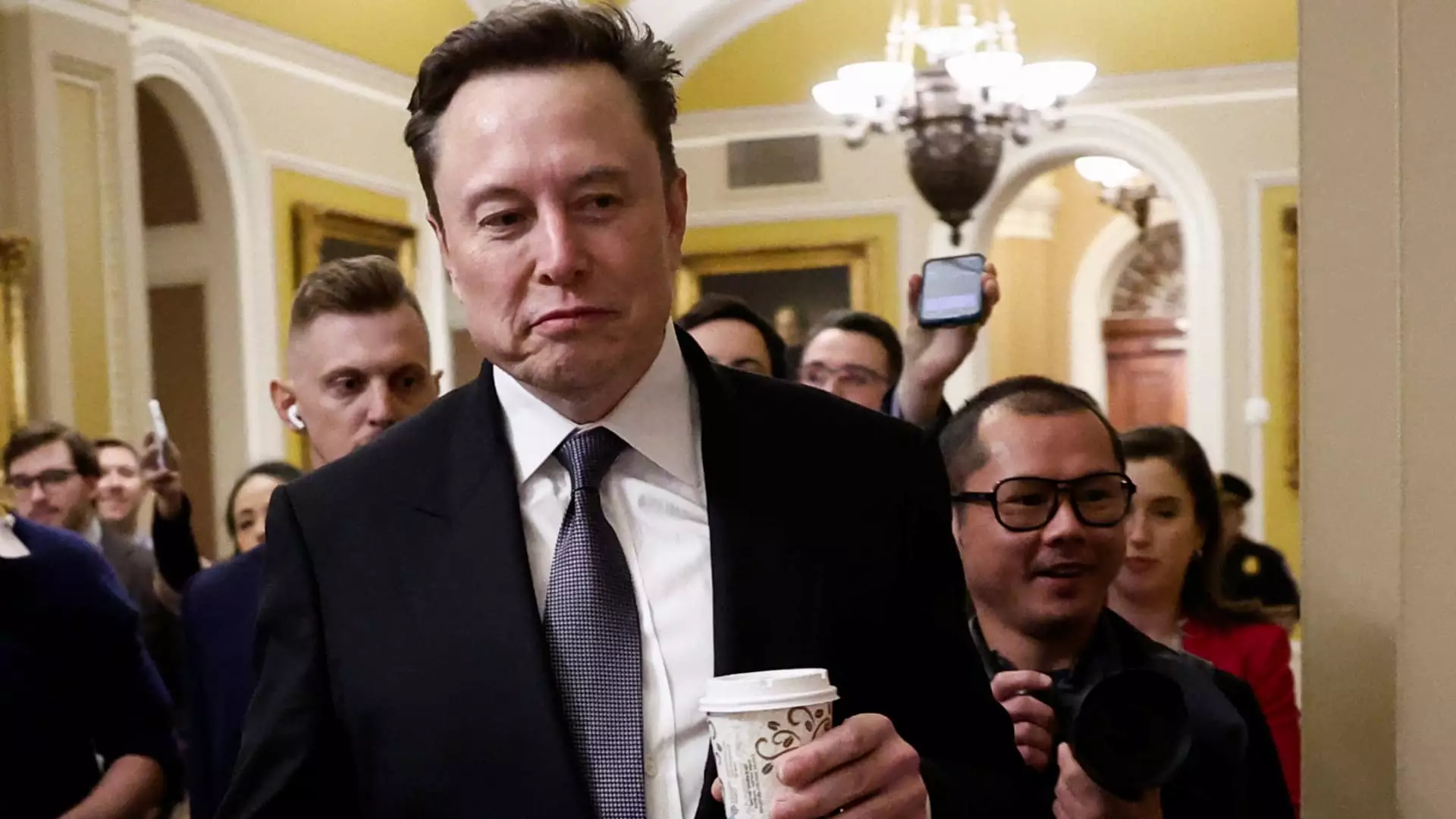In a striking turn of events, House Democrats have openly accused their Republican counterparts of yielding to the pressures exerted by business magnate Elon Musk. The legislative landscape has been shifted as discussions about a bipartisan government funding bill aimed at curbing U.S. investments in China unraveled. The political arena is volatile, particularly as it intertwines with major industrial stakeholders like Musk, who has significant stakes in both American and Chinese markets, thereby raising concerns about national security and economic integrity.
After intensive deliberations, Congress managed to pass a stopgap funding bill, preventing an immediate government shutdown. Yet, this outcome was marred by the loss of a crucial provision that would have regulated investments in advanced technologies such as artificial intelligence (AI) and quantum computing. This component was seen as vital for retaining high-tech jobs within U.S. borders, fundamentally aimed at safeguarding American industry against an increasing reliance on China. Representative Jim McGovern criticized the decision, lamenting that more could have been achieved had Musk’s influence not overshadowed substantive legislative efforts.
The sentiment expressed by McGovern echoes a broader concern about the relationship between private corporations and government policy. By failing to address matters related to U.S. technological sovereignty, Congress appears to have opened doors for potential monopolization and exploitation by foreign entities.
Musk’s dual role as an influential entrepreneur and political actor raises complex questions regarding conflicts of interest. With Tesla’s operations in China—most notably its factory and the recently established battery plant—his investment decisions could entail implications for U.S. economic independence. By establishing a foothold in China’s burgeoning market, where he is vying to roll out self-driving vehicle technology, Musk’s ambitions intersect dangerously with national security issues.
The apprehension expressed by McGovern and his colleague Rosa DeLauro suggests a tangible fear that Musk is not only aligning himself with the financial interests of China but may also be compromising U.S. security protocols. DeLauro’s assertion that Musk’s business dealings necessitate favorable treatment from the Chinese government underscores a critical tension: how can a business leader navigate international interests without undermining their home country’s security and economic resilience?
The implications of such a scenario extend well into the political realm, particularly given Musk’s vocal support for former President Donald Trump. The timing of Musk’s criticism of funding legislation coincides suspiciously with Trump’s public stance against it, suggesting a coordinated effort to shape policy outcomes. This connection taints the principle of independent legislative action, presenting a narrative where executive interests may override essential long-term strategies geared toward international economic stability.
Furthermore, Musk’s recent derogatory remarks directed towards DeLauro only serve to highlight the personal animosities that can arise within high-stakes political dialogue. Such interactions could potentially skew public discourse, detracting from the necessity for constructive engagement on matters that truly require bipartisan cooperation and urgency.
Musk’s substantial financial contributions to the Trump campaign exemplify a troubling symbiosis between large-scale financial backing and political influence. As Musk aligns himself with key figures in the government and takes on an advisory role, questions emerge about the extent to which individual interests can supersede collective national concerns. The formation of advisory groups aimed at regulatory renegotiation, particularly under Musk’s leadership, signals a shift toward privatization of policymaking at the potential cost of broader public accountability and awareness.
As Congress navigates these turbulent waters, the challenge remains: how to foster effective governance that prioritizes national integrity while engaging with influential private stakeholders. A delicate balance is needed to ensure that investments in technology and foreign relations do not come at the expense of American jobs and security.
The intersection of business interests with national policy, as demonstrated by the recent legislative saga, draws attention to the increasingly intricate relationships between politics and powerful industrial players like Elon Musk. As debates continue to unfold regarding the regulation of investments in foreign markets, the question of aligning innovative business practices with robust national security measures remains paramount. The future of governance will likely depend on finding this balance, ensuring that the U.S. can maintain its technological edge while safeguarding its economic sovereignty.

